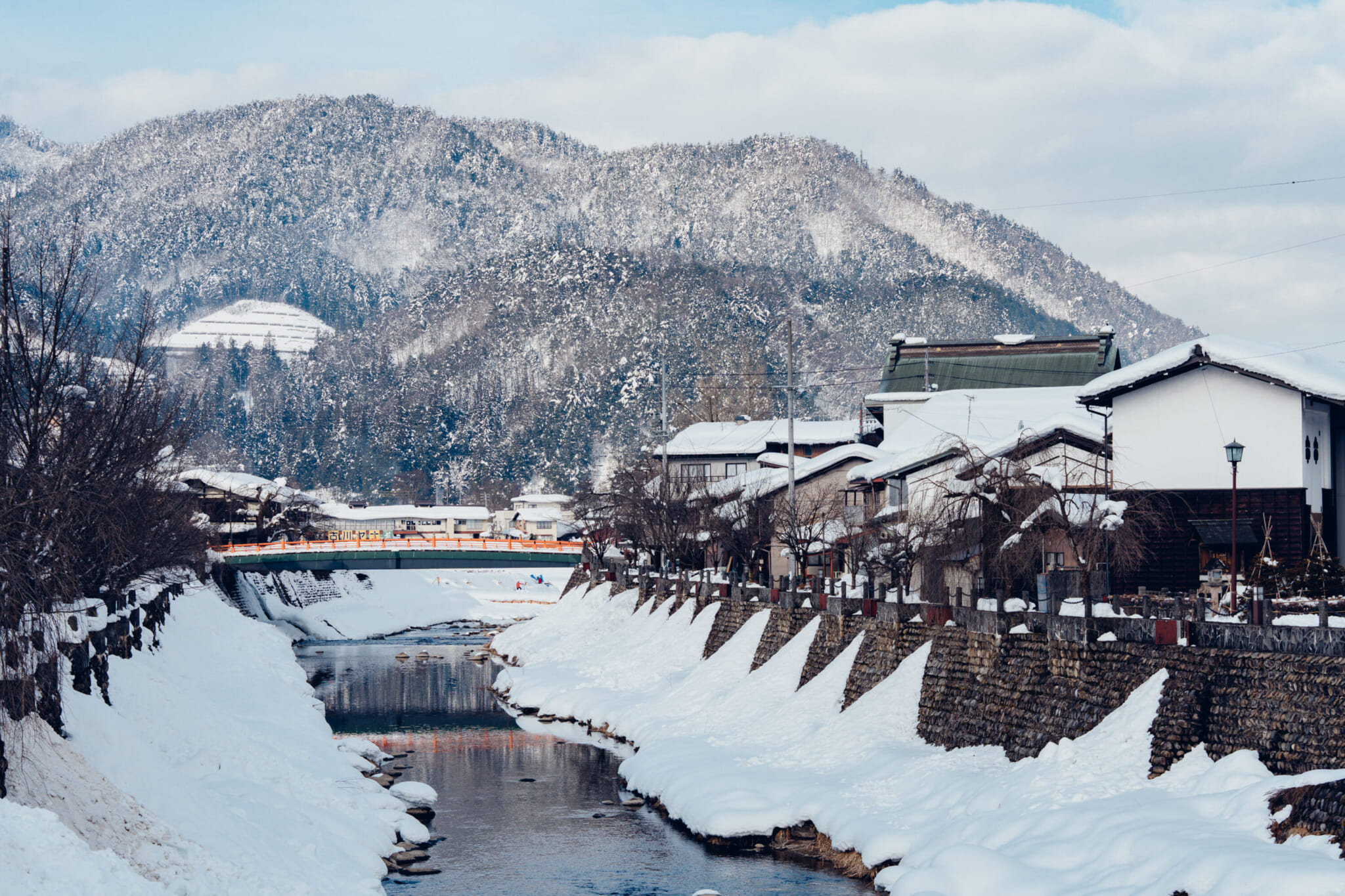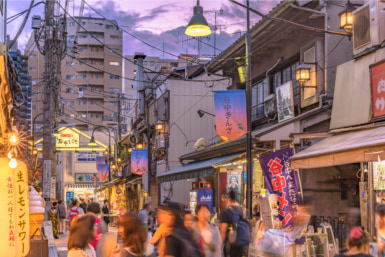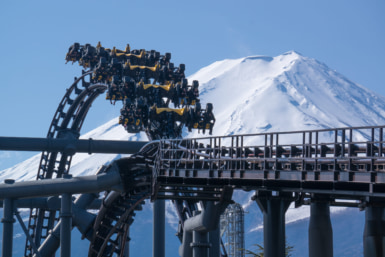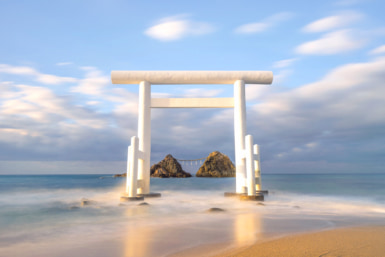Coming from a country where whisky has been ingrained in the people and the land for hundreds of years, I immediately understood the people of Hida-Furukawa in Gifu Prefecture. Alcohol, and its production, isn’t just a hobby, it’s a way of life, an identity and a central part of living. The greatly changing seasons have a huge impact on life and alcohol, of course, and this leads me to think of the great Scottish novelist and writer Robert Louis Stevenson who wrote,
Late lies the wintry sun a-bed,
A frosty, fiery sleepy-head;
Blinks but an hour or two; and then,
A blood-red orange, sets again.
In “Winter-Time,” the Edinburgh-born writer was paying homage to Scotland and its wintry insistence on the rapidity of the sun in winter and its importance as a sign of life. It could well be, however, an ode to the Gifu Prefecture town of Hida-Furukawa. Revolved around sake production and situated deep in central Japan, it’s a stunning and picturesque snapshot of this country at its best. Like a photograph, it has to be appreciated in the moment, at its height and when everything is just right. Susan Sontag encapsulated this experience in her seminal book On Photography. “In the real world, something is happening and no one knows what is going to happen. In the image-world, it has happened, and it will forever happen in that way.”
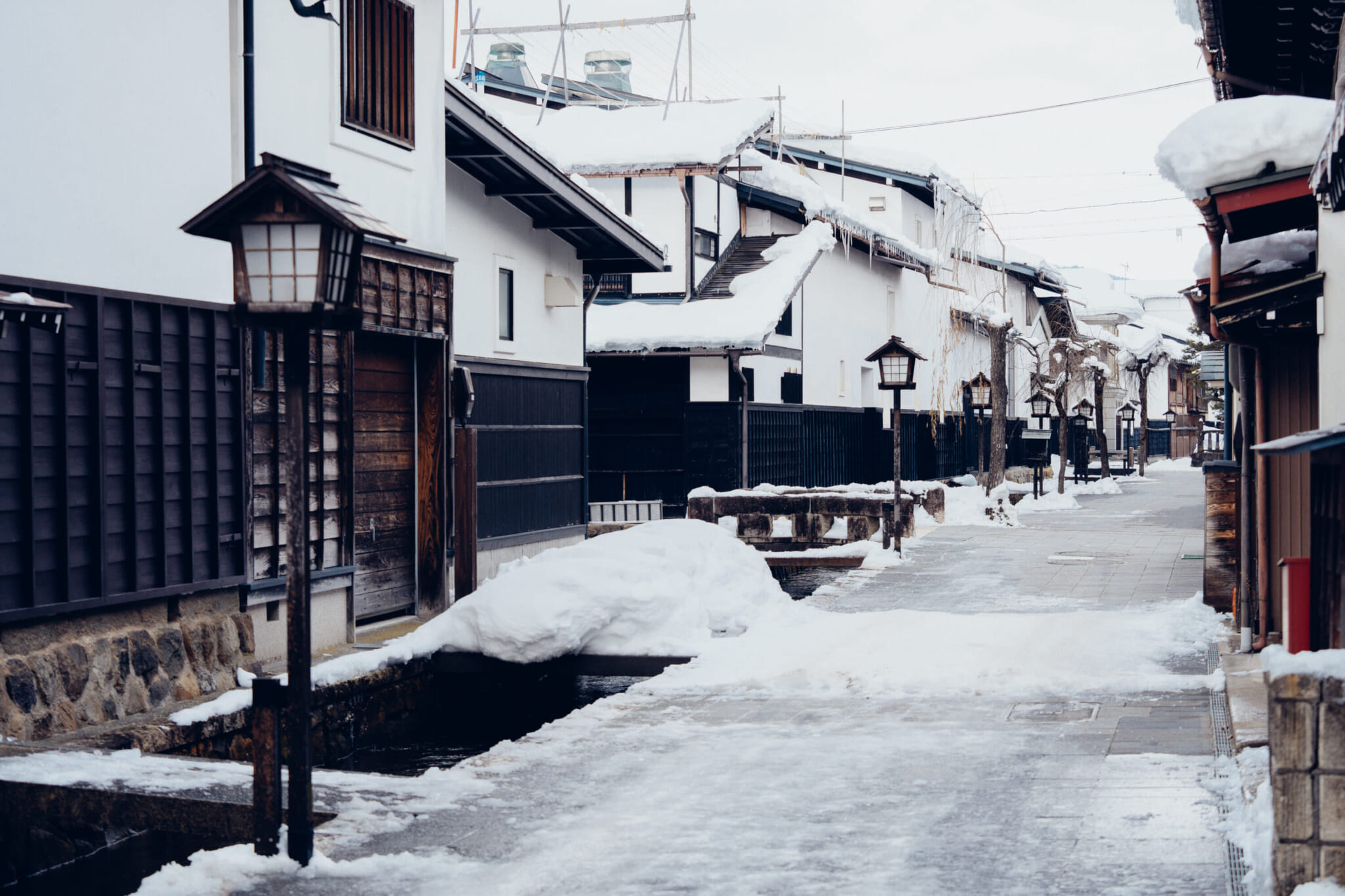
Hida-Furukawa in Winter
Dominated by two sake breweries, Watanabe and Kaba, whose headquarters sit mere meters from each other, Hida-Furukawa is very much a sake town, and it can be found everywhere, in abundance and as a source of local pride, which distinguishes it from other nearby towns and villages. Formed during the Edo Period (1603–1867), Hida-Furukawa is blessed with pristine rivers, surrounded by brooding mountains which puff with mist and clouds during winter and some of the cleanest and most sought-after water in Japan, which also is responsible for the acclaimed rice production which can be seen in the outskirts of the main town center.
Like a picture postcard, Hida-Furukawa has drawn people from all over the country and also, like a social magnet, drawn people home after several years away, including Shingo Matsuba, who owns and runs the company Hidaiiyo, which renovates traditional machiya in the area and turns them into luxury-stay accommodation. With an MBA from Cambridge University and time spent in the States, Matsuba is just what the area needs. A person with a passion for preservation and showcasing the best that Hida-Furukawa has to offer. His Iori Setogawa location, which sits peacefully on the sides of the river, comes replete with all the mod cons, including a sauna, a rotenburo (open-air bath) and, most importantly, an experience which transports you to Japan of old.
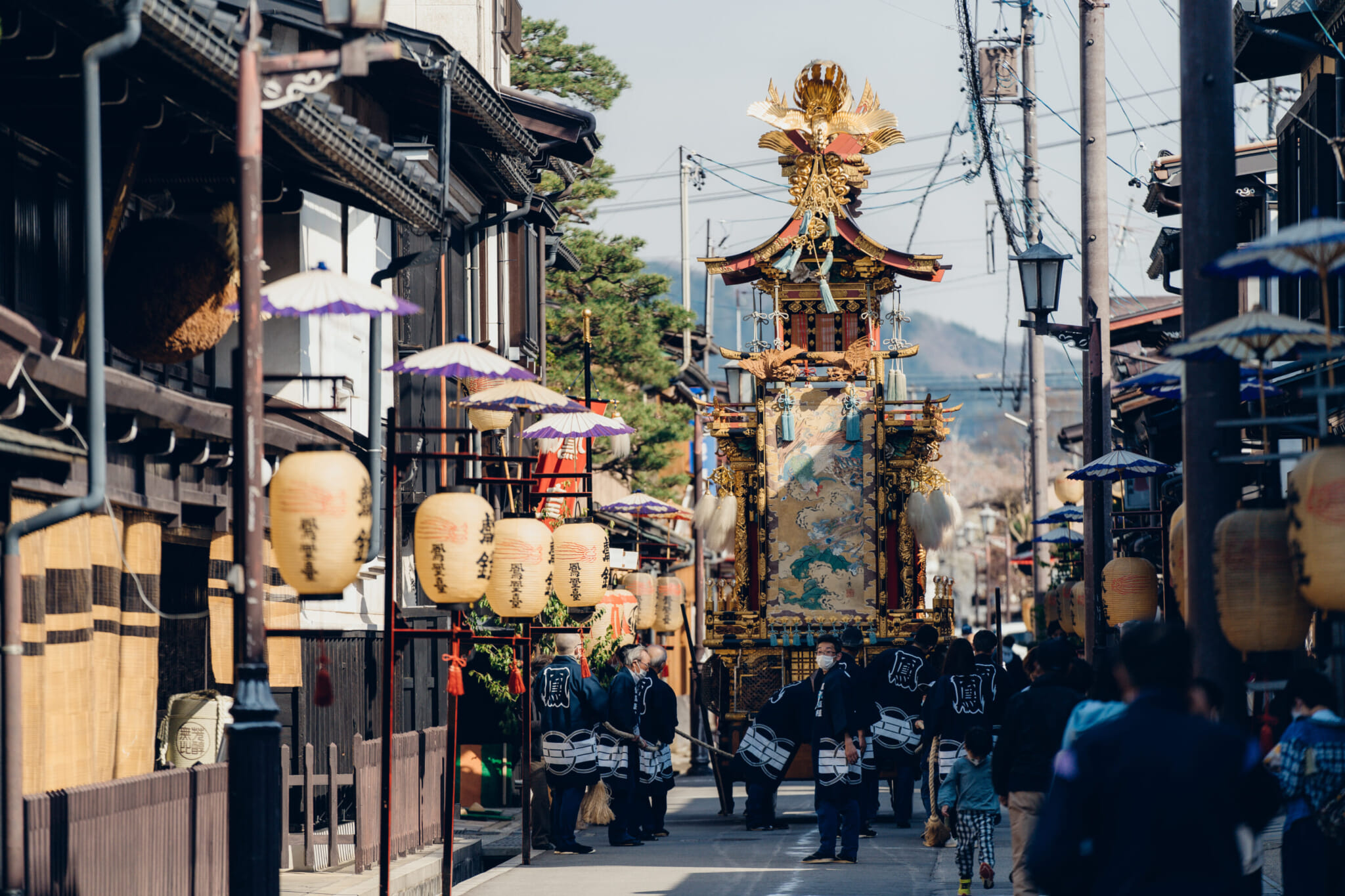
Furukawa Festival
One of the other points of pride in this quaint and beautiful spot is the annual Furukawa Festival which happens every April 19 and 20. This furious exhibition of local energy, which sits dichotomously alongside absolute serenity, is an essential part of life here. If you are unable to visit during April, then experience the festival at the unmissable Furukawa Festival Exhibition Hall, which hosts a really informative museum and a cinema which shows a 20-minute 4K film about the festival and its roots. It’s truly magnificent. Registered on UNESCO’s Intangible Cultural Heritage List, the festival pays homage to the area’s profound connection to Shintoism and involves majestic golden floats, a parade of half-naked men, okoshi-daiko (rousing drums), traditional dance and beautiful kabuki performances by children.
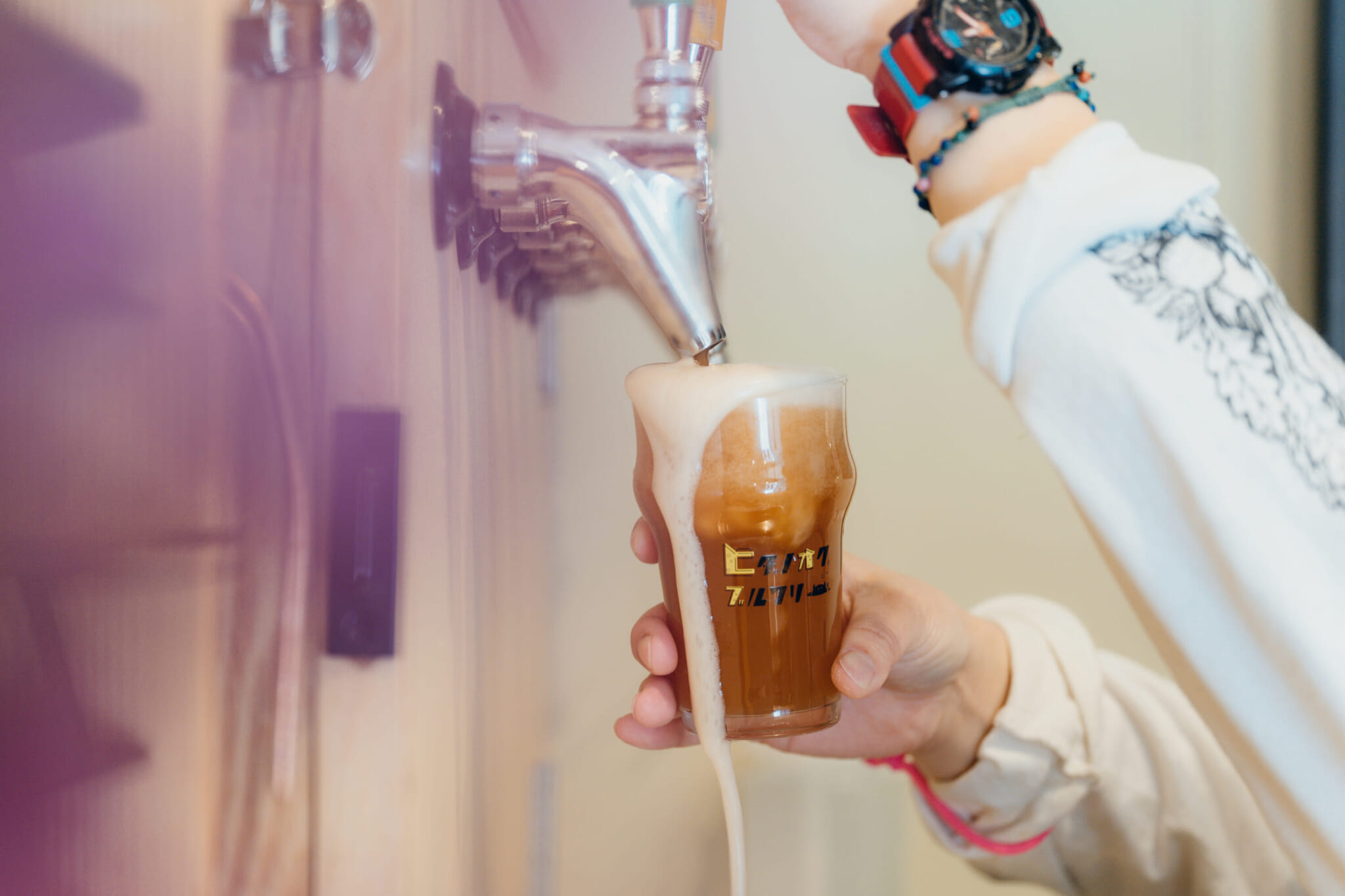
Hida no Oku Brewery
As sake is a central part of Hida-Furukawa, a visit to both breweries is vital. Although near in physical proximity, there’s a distinct difference between the sake they produce. Pop in for some tasting sessions or visit the brewery shops which are full of delicious local produce. This can also be found available in izakaya, restaurants and bars in the town. Hida-Furukawa is the perfect model of sustainability as everything made here is also sold here with various owners and businesspeople frequenting each other’s establishments.
If you are more of a craft beer head, then a stop off at Hida no Oku Brewery and shop is essential. Run by Yoshimi Shimode, it sells her own hand-crafted beer. This comes in a variety of styles, such as apple beer, lager and chai. Craft beer is, sadly, known as a male-focused domain, but Shimode is leading the way with her stunning and female-led local beers.
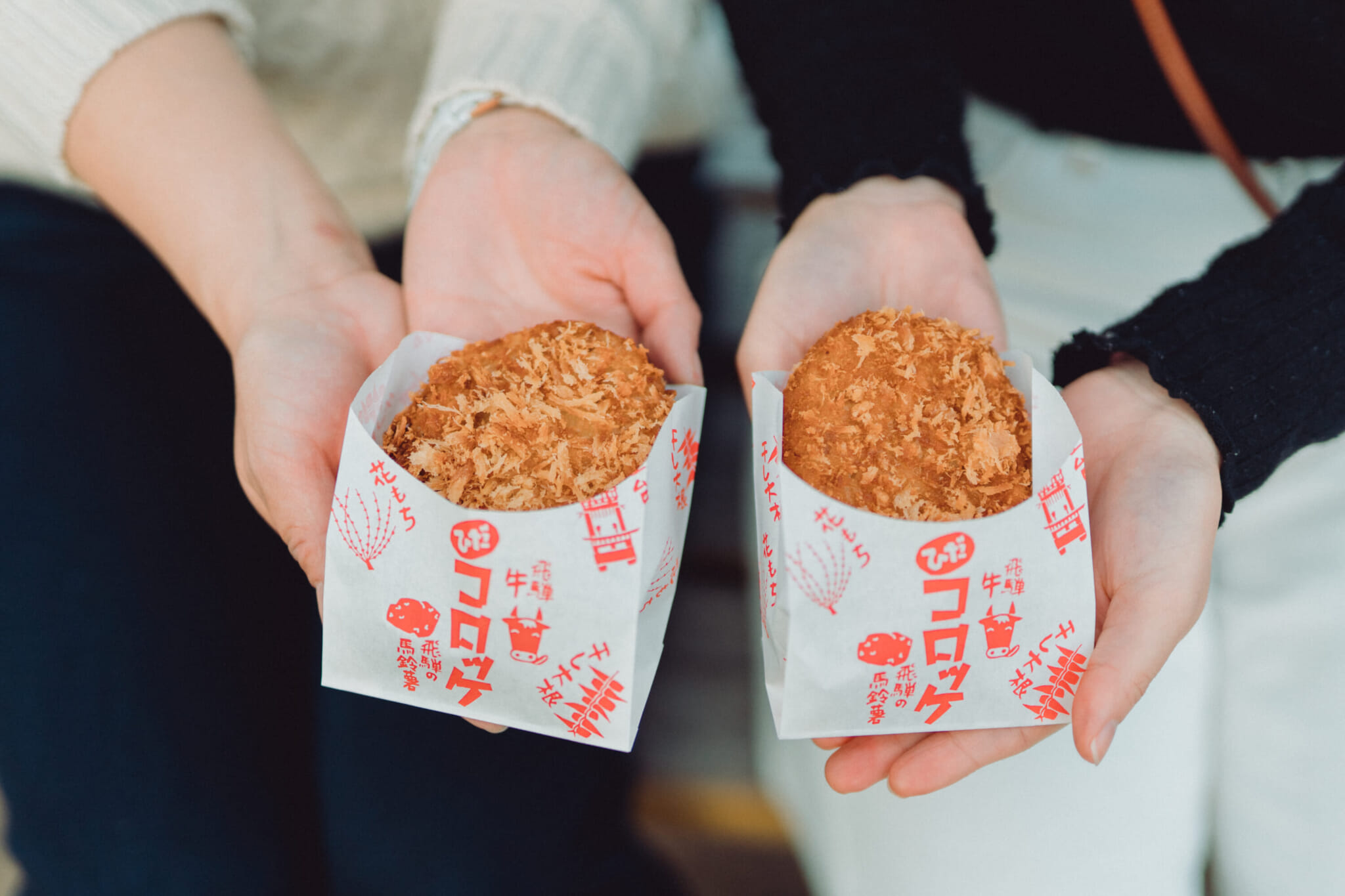
Hida Croquette Shop
For a touch of sustenance, there are a variety of options. Hida is known for its high-quality beef which can be found around the town, especially in croquette form from the Hida Croquette Shop not far from the station. Near there is the majestic Fukuzenji Soba which is run by the super-friendly Kawahashi family. Its korokke soba, which involves a beautiful and sizable Hida beef croquette atop a bowl of amazing soba noodles in a light and aromatic broth, is something which I will come back for, again and again.
For dinner, head to the cozy izakaya Ma-kun, which serves local delicacies including tsukemono steak — fried tsukemono in an expertly cooked omelet. Pair every dish with Watanabe sake and you have yourself a perfect night out. The patrons, like pretty much every place in Hida-Furukawa, are engaging, generous and very friendly.
A visit to this town wouldn’t be complete without a tour around its three main temples and one hugely influential shrine. Enkoji, Honkoji, Shinshuji temples and the imposing but wondrous mountainside setting of Keta Wakamiya Shrine are all necessary to feel the importance of Buddhism and Shintoism, which play vital roles, side by side, in this magical Gifu village.
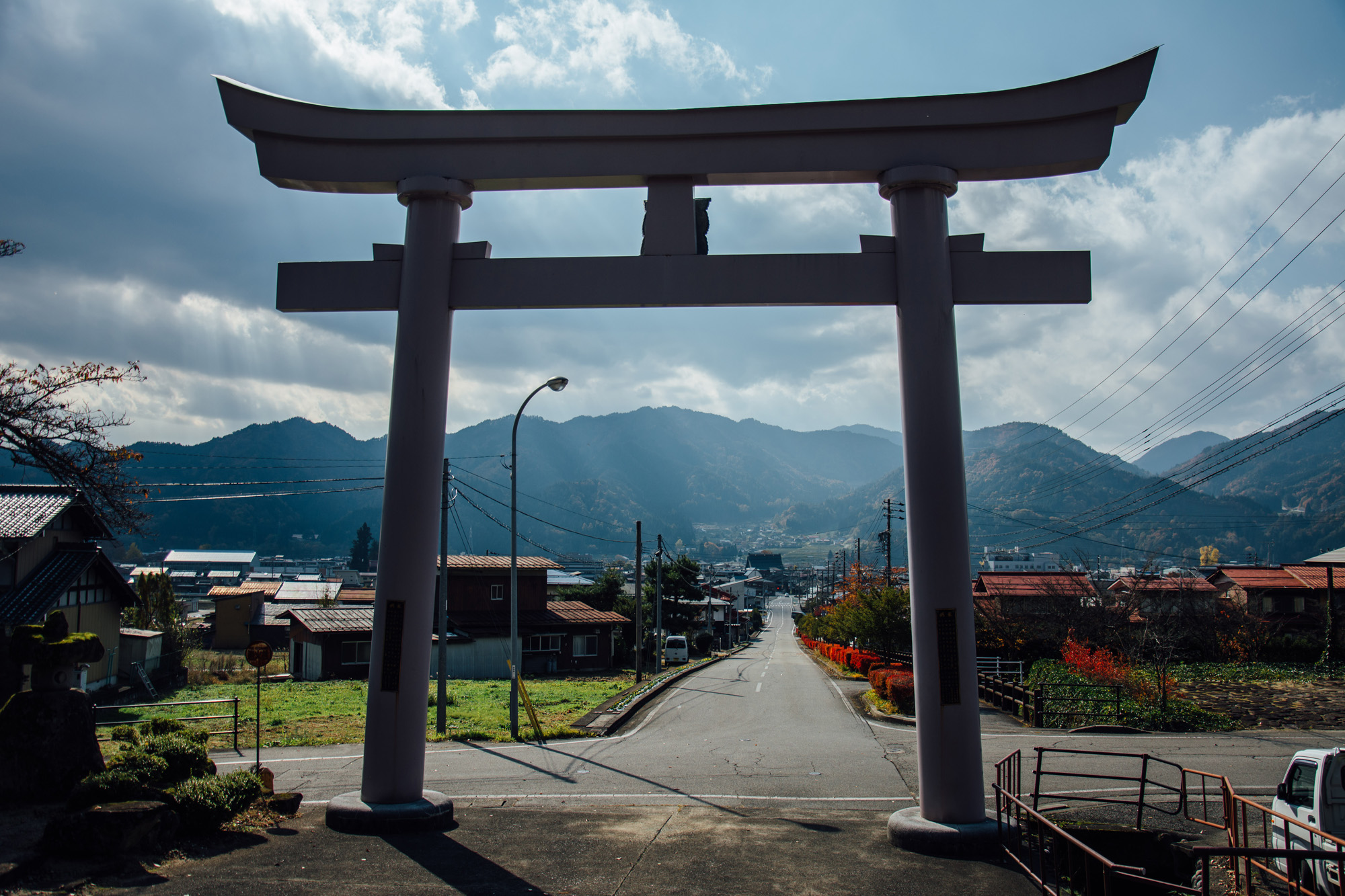
The entrance to Keta Wakamiya Shrine
If you’re on the lookout for a coffee, cake and a bit of respite, then hit up the beautiful FabCafe Hida, where you can have your own masu (sake cup) made, engraved with your own name and design of your choice. Ichinomachi Cafe is where you should go for a beautiful curry rice lunch, hand-made cakes and superb coffee. With a local and friendly service, it’s my choice as the last stop on your visit before you head to the station and return to city life which, often, you rue and regret. It’s then you realize that Hida-Furukawa really has all you need and want, if you are genuinely being true to yourself.
Hida-Furukawa can be accessed from Tokyo in just over 3 hours, Nagoya in 2.5 hours, Toyama in 74 minutes and Takayama in 15 minutes.
For more information, visit Hida’s official travel guide.

